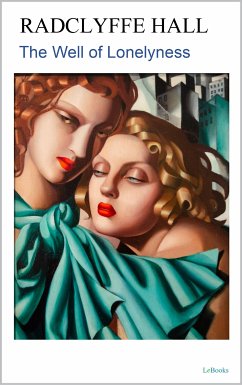"The Well of Loneliness" is a powerful and poignant examination of gender identity, societal rejection, and the complexities of love within the confines of early 20th-century British society. Marguerite Radclyffe Hall explores the struggles of Stephen Gordon, a woman who identifies as a lesbian in a world that condemns such love. Through Stephen's journey, the novel delves into themes of isolation, societal stigma, and the quest for personal authenticity. Hall challenges the rigid gender roles and moral codes of the time, portraying a poignant narrative of longing and unfulfilled desire. Since its publication, "The Well of Loneliness" has been both controversial and revered for its groundbreaking portrayal of homosexuality. The novel's exploration of Stephen's emotional and psychological turmoil in a world that refuses to accept her love has made it a significant work in LGBTQ+ literature. The raw honesty and vulnerability with which Hall writes about the difficulties faced by those on the margins of society has ensured the novel's lasting impact. The novel's enduring relevance lies in its exploration of the universal struggle for self-acceptance and the right to love without shame. "The Well of Loneliness" invites readers to reflect on the nature of exclusion, the societal forces that dictate identity, and the emotional toll of living in a world that marginalizes difference. Through Stephen's journey, the novel offers a profound meditation on the human need for connection and the courage to live authentically.
Dieser Download kann aus rechtlichen Gründen nur mit Rechnungsadresse in A, B, BG, CY, CZ, D, DK, EW, E, FIN, F, GR, H, IRL, I, LT, L, LR, M, NL, PL, P, R, S, SLO, SK ausgeliefert werden.









